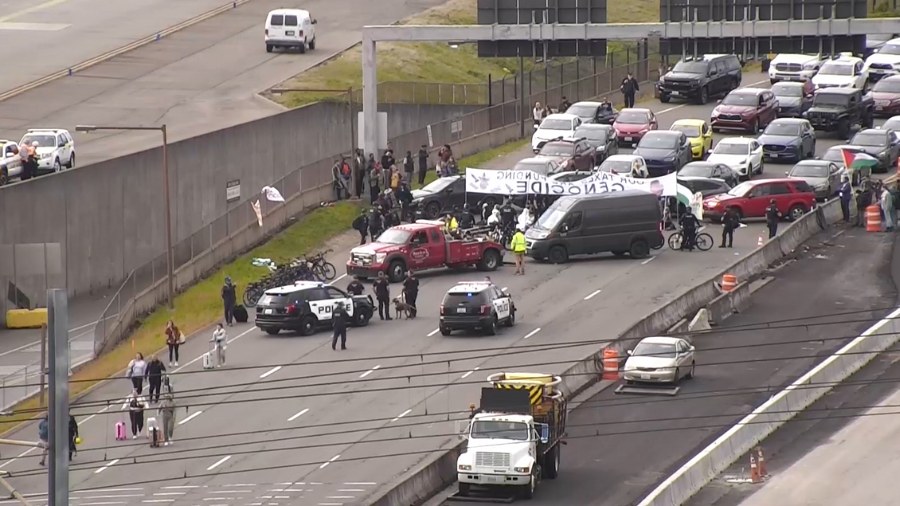Seattle retail outlet pays over $300,000 for allegedly violating hazard pay ordinance
Oct 4, 2021, 10:55 AM | Updated: 11:42 am

Total Wine & More (Via Flickr)
(Via Flickr)
Total Wine & More, which operates two retail stores within the Seattle area, has reached a settlement with the Office of Labor Standards (OLS) over an alleged violation of Seattle’s grocery store hazard pay ordinance.
OLS alleges that Total Wine & More was not in compliance with the ordinance, and as part of the settlement they will pay a total of $333,019.57 to 101 current and former hourly employees of the outlet.
The ordinance, passed in January of this year and effective in February, guarantees an additional $4 an hour for Seattle’s frontline grocery store employees. While originally passed as short-term legislation, the Seattle City Council has delayed votes on repealing the hazard pay twice in recent months. Councilmember Teresa Mosqueda has cited the ongoing surge in delta variant COVID cases as the primary reason for maintaining the ordinance.
Seattle council leaves grocery store hazard pay in place indefinitely
Total Wine & More disputes that the ordinance is applicable to their stores, but it has voluntarily agreed to settle without admitting liability.
“Over the past year and a half of the pandemic, the staff at Total Wine have been on the front lines for our work,” a Total Wine employee stated in a press release. “We are grateful to the Office of Labor Standards for helping us to get the hazard pay that we were owed. The staff of Total Wine, and all retail workers have put our bodies and our families at risk every day during this pandemic and it feels important that the City of Seattle recognizes that fact. It’s unfortunate that we had to fight to get this recognition, but at the end of the day, we have the compensation we were owed thanks to the assistance we received from the Office of Labor Standards.”
Since the ordinance’s passage, OLS has recovered $336,080.02 from two employers, including Total Wine & More, for alleged labor violations of the hazard pay requirement.
“When faced with the Covid-19 pandemic, the City of Seattle stepped up to continue to ensure workers’ rights were not only protected, but that workers were supported financially in this time of crisis,” Steven Marchese, OLS director, said in a press release.
“Grocery workers, many of whom are low income and BIPOC, were on the front lines from the beginning of the pandemic putting their lives and the lives of loved ones at risk. That’s why it is so important for businesses to comply with the GEHP Ordinance, as well as all of Seattle’s labor standards, as we all work toward building back a stronger economy.”












